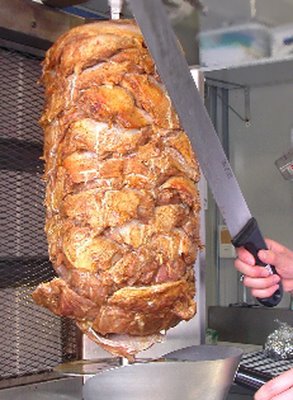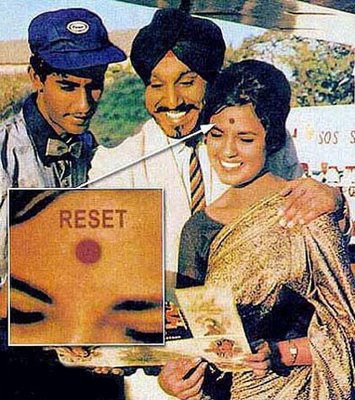 Alex Terrieur
Alex Terrieur
La Lune de la presse internationaleSOMEWHERE, WORLD
The United States of America, self-proclaimed leader of the free world and world’s uncontested military superpower, decided to intervene Friday. The intervention comes at a time of heightened tension in the world, while America has been criticized for its increasing isolationist policies.
“I think the intervention will take some form of intense aerial bombardment and perhaps even the prolonged deployment of ground forces,” explained General Simon Blackburn. “I expect between 250,000 and 300,000 ground troops to be committed initially, in phase one of the operation."
Although civilian casualties are expected to be heavy, the military has promised to due its best to avoid “collateral damage” while at the same time securing the economic interests of the United States.
Critics of the intervention have been asked to forestall public displays of disapproval or analysis of the situation until the crisis has been resolved. In the words of Senator Trent Lott, “We cannot fully discuss the intervention until the forces are committed and the goals have been achieved. For now the decision to intervene has been made, and the debate is closed. When events are long past us, then we can look back and explore the other options that were available.”
But Senator Arlen Specter countered Lott’s statement, saying “the forces of this nation are already committed to intervention, but there has not been an outright decision by the people to intervene. However, since we are the United States, we have a responsibility to ensure that our Way of Life dominates the global economy, while protecting our interests from any possible aggression. Therefore we are sometimes required to intervene even when we might logically discuss other diplomatic or humanitarian options.”
In other words, there is a consensus among lawmakers that intervention is necessary in this situation. Executive branch advisors, along with the president, say they will later designate the length and scope of the intervention, as well as where US forces may intervene. Talking Sunday morning about the intervention, the President said, “We know we’ve got to intervene, and we know why, we just don’t know where. But rest assured that I will be patient and that we will prevail. Our forces is prepared for whatever face them, and the world will know that America will not allow other nations to blackmail us as they might someday do.”
Regime Change
The unspoken goal of the intervention is to bring about a global regime change, although this may be optimistic on the part of the government. The hope is that all resistance will be crushed and that any existing regime will simply collapse under the crushing economic and military might that is the United States of America.
In an ideal intervention, which may come as soon as tomorrow, overwhelming destructive force will be applied while, at the same time, diplomatic and humanitarian efforts are quickly discarded in the wake of successful tactical and strategic military victories. Military analysts hope to achieve a large kill ratio and near 90 percent bombardment accuracy in this campaign, one chief military correspondent commented.
Using smarter weapons and even more intelligent explosives than in the previous campaign, along with years of investment in covert action that has digitally pre-designated all targets, military planners hope to achieve complete destruction of the enemy’s capabilities within 25 minutes of the beginning of the intervention. “No one messes with ‘merica,” stated Admiral Bradley S. Howard of the Naval Operations Security and Homeland Intelligence Team (NOSHIT).
On the other hand, if the intervention fails to bring about a complete collapse of whatever regime the government chooses to topple, critics say that many of the world’s nations may secretly promote ill will and perhaps even disdain of the United States.
“Unthinkable,” replied Representative Jim Gray. “Once America shows it is intervening, committed and capable, everyone will either join in or shut up.”
Asked how this tactic may be differentiated from typical schoolyard bullying, Congressman Hatch of Utah commented, “At schools the weapons aren’t nearly as sophisticated or efficient, and the consequences are much more serious. Whereas school bullies may suffer from punitive action on the part of the school administration or police, America does not need to submit itself to any authority. In this case, we are the police.”
After the Intervention
It may be too early to tell what will happen directly following the intervention, although it is predicted that the unrivaled power of the United States will precipitate decades and perhaps centuries of global military domination that may entail dozens more unwarranted actions in the coming years. So far the government and particularly the president, who “thunk up” the major parts of this intervention, say there may be no need to foresee rebuilding whatever nation they decide to attack, since military analysts plan to kill many potential leaders and their potential followers, supporters and financers. In fact, says one correspondent, it may take “several generations” before much of the land and drinking water once again become suitable for human use.
“This avoids many of the problems associated with occupation,” said Colonel Jack Prickner. “We can simply leave once the shooting stops, thereby avoiding any commitment to the region. What’s better [is that] we can rest assured knowing that America’s interests will be safe in that area for years to come.”
We can conclude, therefore, that America has, at least for now, decided to intervene. We may soon find out where, but the decision has already been made at the highest levels as to how and why. The goal of protecting our Way of Life, enforcing liberty and securing the remaining world resources remain the underscoring focus of the administration leading to this decision.
 BREAKING...
BREAKING...




